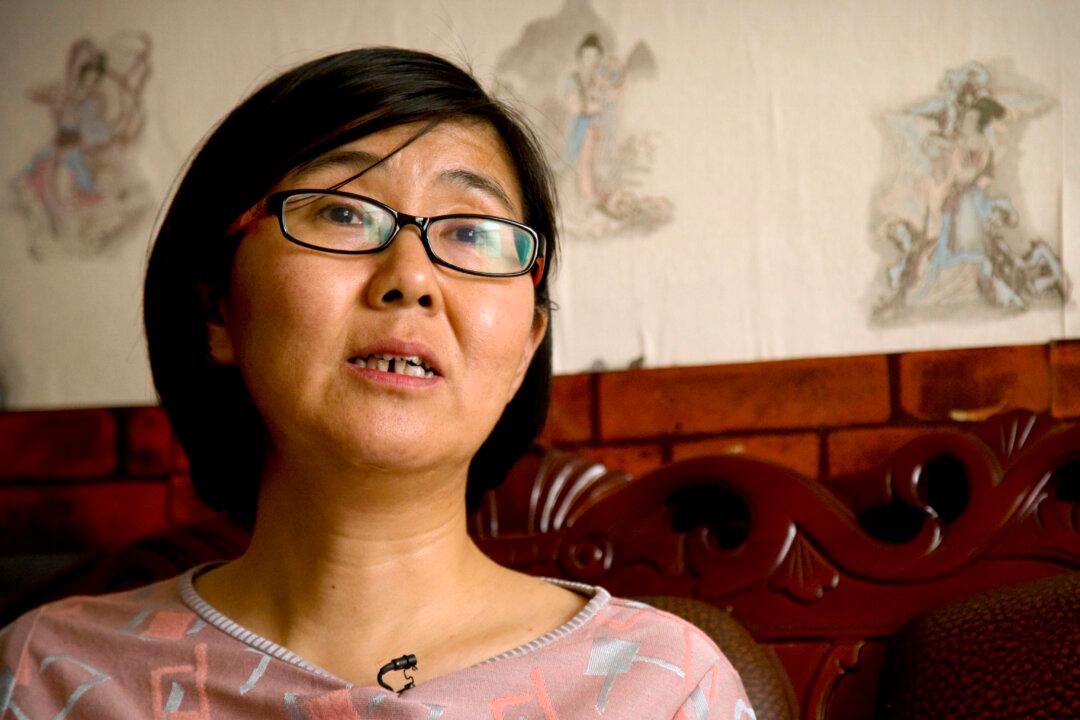The Chinese Communist Party used to label its perceived political challengers as “counterrevolutionaries.” Today, “state subversion” has inherited the mantle as the Party’s catch-all charge against those it deems problematic.
Wang Yu, a renowned human rights lawyer, was formally arrested on suspicion of “subversion of state power,” her lawyer Li Yuhan told several Western news outlets.
Her husband, legal activist Bao Longjun, was charged with the lighter “inciting subversion of state power.” If convicted, Bao faces up to five years in prison, and Wang, a potential life sentence.
“This is very, very severe punishment,” said Teng Biao, a prominent Chinese human rights lawyer now based at Harvard Kennedy School, in a telephone interview. “The Chinese Communist Party’s suppression of lawyers has reached a frenzied level.”
The formal arrest of Wang and Bao is the latest development in the Chinese regime’s crackdown on Chinese rights lawyers and legal activists, which started with mass arrests last July. Chinese lawyers say that the Chinese regime has no legal grounds to charge the couple and other lawyers with political subversion. They also say that the move is an attempt to gag the legal community but is destined to backfire.
‘Only Defending the People’
Wang Yu and Bao Longjun are currently in police detention in the port city of Tianjin, according to the South China Morning Post, a Hong Kong English-language daily. Twenty-three out of nearly 250 targeted lawyers and legal activists remain in custody or are missing, according to Amnesty International.
Wang and the other arrested lawyers were merely doing their jobs in “defending the basic rights of citizens in accordance with China’s law,” according to Teng Biao.
In her career as a rights lawyer, Wang has represented notable individuals like rights activist Wu Gan and Uyghur academic Ilham Tohti, as well as practitioners of Falun Gong, a traditional Chinese spiritual discipline that is heavily persecuted in China. A week before her arrest, Wang was roughed up and physically thrown out of court in Hebei Province, in northern China, because she insisted on defending her client, a Falun Gong practitioner.
The imprisoning and prosecuting of these lawyers is a “violation of Chinese law and the international human rights pacts China is a signatory of,” Teng added. China is presently party to six United Nations human rights treaties, including a convention on discrimination against women and the use of torture.
Also, the charge of political subversion “doesn’t hold water” because “subversion can only come from armed struggle or military operations ... or open rebellion,” according to Zhang Zanning, a practicing attorney and lecturer in the law faculty at Nanjing’s Southeast University.
“Wang Yu has no capability, influence, or the audacity to subvert the state,” said Zhang in a telephone interview. “She has only upheld the country’s laws in defending the people.”
‘One Step Forward, Two Steps Back’
Law lecturer Zhang Zanning explained that the charge of state subversion has replaced accusations of “counterrevolutionary crimes” in the Party’s lexicon for labeling its perceived political challengers.
From the time of Chairman Mao Zedong to 1997, “to call someone a counterrevolutionary is to accuse someone of a political crime,” he said. “Now subversion of state is a political charge.”
“Those who the rulers consider to be slightly encroaching on their authority” would be now charged with “subversion of state power,” Zhang added.
The increased willingness to use such heavily political charges against peaceful activists who seek only to operate within the existing legal system represents “one step forward, two steps back” for development of China’s rule of law, Zhang said.
(The step forward refers to the “big achievements” of a lower barrier for criminal complaints to be accepted by the regime’s prosecuting bodies, and the abolition of labor camps in recent years.)
Suppression ‘Useless’
Teng Biao, the former rights lawyer, feels that the average Chinese citizen is not inclined to express sympathy for the plight of Wang Yu, her husband, and others, because the regime maintains strict Internet censorship and smears the activists in the press.
For instance, when hundreds of rights lawyers were swept up in July 2015, state media accused them of “severely disrupting social order” and profiting from their endeavors as a “rights defense cartel.”
But supporters of the rights lawyers are increasing despite this “propaganda machine,” Teng added. And “many brave human rights lawyers have continued to step out” in the face of the recent suppression.
Beijing-based human rights lawyer Yu Wensheng told the Epoch Times that at least “20 to 30 lawyers have joined the rights defenders” after the July crackdown, better known in the Chinese human rights community as the “709 incident.”
“So I think the suppression is useless, and will only inspire more lawyers to walk the path of human rights defenders,” Yu said over the telephone.
“Lawyers, I feel, are the cornerstone of the rule of law in society,” said prominent Beijing dissident Hu Jia in a phone interview, launching into a fiery tirade against the Chinese regime and its human rights abuses.
“In the 21st century, one-fifth of the world’s population is living under a tyranny where their rights are constantly trampled upon. I think this is not only China’s problem, but the world’s,” Hu said. “The West should pay more attention to this issue.”





